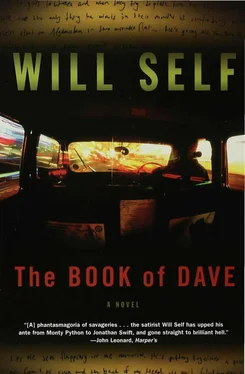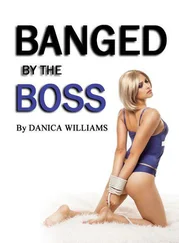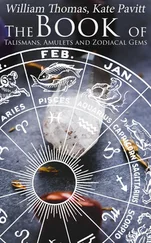Carl drifted back to sleep, and when he awoke again the next tariff, the chamber was full of bigwatt foglight. Böm had already risen and was dressed in the tight jeans, frogged T-shirt and full-skirted leather carcoat of a Hack. Come on, come on, he cried, get up, lad, The cabbie has already brought the limmo from the garages, we hardly have time to bolt starbuck before we must be gone for our sightseeing tour. Your threads are over there, he added as an afterthought, indicating a pile set atop a pair of high-topped trainers that were broken at the ankle.
With his top lip scraped raw by a bic and his hair smarmed back under a cap, Carl felt like a little ponce. Antonë, however, assured him he looked the part. What part? Carl asked, and his mentor explained: From now on I am a Hack who holds a mortgage on one of the Blunts' estates, my name is Barrë Iggynbumme, you are my son and your moniker is Sam.
The Taffy was at the reins of the limmo team; he lashed at the jeejees, and as they swept out of the courtyard two fonies leaped on to the rear bumper. From their flub-a-dub-dub through the back window, Carl assumed they were chavs rather than bondsmen. He wanted to ask Antonë about them but the marvellous sights outside the limmo soon captured his attention.
The limmo rollicked along Whitehall and clattered between the precincts of the Royal Palace. Wide courtyards opened out on each side of the roadway. In one of these Carl saw rope-dancers and fire-eaters performing for the amusement of a posse of young dads in screen-blue robes. The King's EyeBeeEms, Böm saw fit to inform him. These striplings are brought into his service to keep the Exchequer's tallies and manage the coinage. Then, between two wings of the Palace, Carl saw a beautiful garden, bursting with unusual blooms arranged in cunning patterns and low walkways overarched with clipped shrubbery. Along one of these sylvan aisles he espied laughing luvvies, tottering along on the highest of heels and accompanied by fools cutting capers and opares wheeling maclarens.
The Palace was so large as to defy comprehension — it spread along the river bank in a thick moraine of yok, crete and London brick. This behemoth building was pierced by a myriad windows and hung about with numerous, precarious wooden staircases. Its sweeping roofs were speared by a forest of smoking chimneys and seeseeteevee masts, while everywhere Carl looked, flapping from high poles, was the King's standard, the golden Wheel folding, then stretching to proclaim the motto of the dävidic line: DAYV GUYD UZ.
On they rolled, into the boggy water meadows beyond Westminster and through the pretty little riverside manors of Millbank and Pimlico. It wasn't until the limmo slowed to a crawl and the cabbie asked them all to climb out and walk, for the King's Road was too steep and too muddy for them to haul up, that Carl emerged from his reverie. There were other cars being drawn up the rutted roadway, while their posh passengers trailed along behind, gingerly lifting their trainers to avoid piles of horse shit and other ordure.
As they joined this workaday cavalcade, Carl asked Antonë:
— What sight is it, exactly, that we're going to see?
Böm was abstracted. Why, we have come here to see this, of course.
They had gained the heights of Chelsea and, looking back, Carl could apprehend for the first time the whole lazy bend of the Thames as it swept through the city. On the far back were the hilltop manors of Kennington and Battersea, while below them and to the east London spread out: a carpet of tiled roofs, pierced by dense thickets of smoking chimneys and redbrick towers. Here and there were golden domes — which to the lad's eyes had the aspect of giant shrooms. With the black bugs of motos trundling through the streets and the flocks of flying rats, crows and ringnecks circling, London seemed Ham-like to Carl, an island of urbanity in the windswept burbs.

The following day Carl Dévúsh awoke to discover that the mist had blown in off the burbs during the third tariff and mingled with the sulphurous smoke of the city's thousands of fires to engender a thick particular. This lay as heavy as crete over the malodorous river. The masts of luggers, barges and wherries disappeared into it, while the wargaffs lining the south bank emerged from it wavering and insubstantial — as if they were but a temporary solidification of the smog and it was the more durable element. The brackish reek of the river water and the richer pong of London's effluvia seeped into the Lawyer of Blunt's fuckoffgaff, and, despite the best efforts of the chavs and poles — who darted hither and thither strewing incense on the fires — the elegant chambers stank as the meanest hovel.
Idle, with time heavy on his hands, and no tank for the rich curry or strange takeaway the Luvvie Sarona pressed upon him, Carl wandered the galleries and halls. He tried to imagine the Hamsters here in London — genial, squat, broad-faced Fukka Funch striding bow-legged among the crowds on the Strand; or his stepdad Fred Ridmun's lanky length poling a pedalo over the colloidal waters of the Thames. It was impossible, though: like the buildings on the far bank, the Hamstermen wavered and dissolved into the smog. They had no place in this ant heap; they could never adjust to this rigid hierarchy of chavs, bondsmen and commoners — which mounted up to the Inspectorate and the King himself. The Hamstermen would have wanted to sit down and discuss it all at great length over booze and fags — and there was no time for that. No time at all.
At first tariff the following day the foglamp was once again bigwatt in a clear screen. The Luvvie Sarona was in the front hall when Carl came down, her changingbag packed, her opares fussing about. It's Changeover, she explained to the lad, and I will be off in the limmo to my brother-in-law's estate in the sticks, while he will return here before third tariff. Dave be with you, lad, I understand that your teacher has a diverting day planned for you!
It was indeed a diverting day — although not in a pleasant way. As soon as they turned out of the ornate gates of Somerset House, with their lawyerly escutcheons and wrought irony spikes, they found themselves in the thick of an hysterical crowd. The Strand was packed with children, opares and mummies, all of them bent under changingbags, all of them attempting to secure the available transport. Cabbies, rickshaw dads, the fonies who had charge of vans and artics — all were bargaining with the desperate mummies in a most savage fashion. Carl saw one huge pikey tear the dosh from a mummy's hand, then bodily throw her and her children on top of his coach, where ten or so other unfortunates were already sprawled.
The keening of the mummies and kids as they were pushed and shoved contrasted grotesquely with the set faces of the few daddies who were abroad, hurrying about their business, and the seeseeteevee men who leered down from their watchtowers. The kiddies must all be changed over and their mummies off the streets before the beginning of the second tariff, Antonë explained; after that the PCO begins to make arrests. Thousands of gaffs are searched every Changeover day. No parent can escape them.
They gained Trafalgar Square, and here the commotion was even greater, for crowds of mummies and children were being forced up on to the steps of Dave's column — forced by a tight wedge of running dads who were spilling from the mouth of Whitehall. And if the PCO doesn't get them, Antonë said ruefully, then the mob will. The daddies all wore long black T-shirts, their faces were twisted by venom, their mouths gaped, their trainers stamped, they struck out with their fists to the left and right, smiting mummies and kids both. Fukk ve SeeEssA! Fukk ve SeeEssA! they were chanting.
Читать дальше













